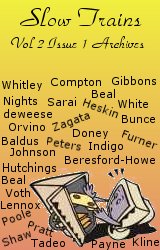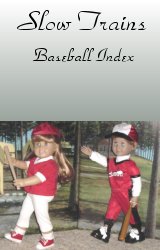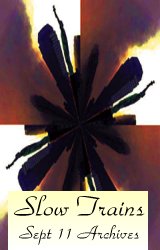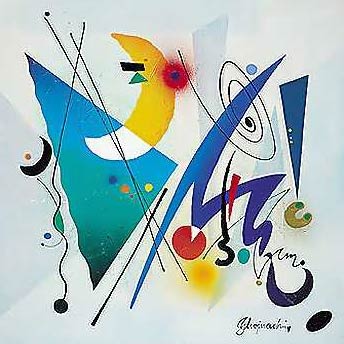
Good Morning AztlŠn: Music Reviews
by Jeff Beresford-Howe
Good Morning AztlŠn
Los Lobos
No locusts. But in the last few years, record company hassles, desultory live performances, a songwriting slump worse than a Red Sox September and a horrifying personal tragedy -- the kind that gets bloodsuckers like John Walsh talking about you -- have left Los Lobos in a terrible place, and in three years of relative silence after the 1999 release of the godawful This Time, the only bad album the band has ever released.
It's been a huge loss. They are a songwriter's band with a jam-band sensibility, and a national treasure. It's a band that sounds authentic playing acoustic music from Michoacanas or Veracruz and jamming on tunes by Traffic, Marvin Gaye and the Grateful Dead. It's a band talented on dozens of instruments and with three songwriters -- David Hidalgo, Louie Perez and Cesar Rosas -- who contribute material that shines. It's a band with a heart of gold and a cynic's eye, a drunken stumblebum straightening up to reveal the inner Gregory Peck.
It is excellent news, then, that they're back with an album, Good Morning AztlŠn, that stands up to their best work. The album careens from the cities of the California coast to the ranches in in the Central Valley, from Los Angeles to Mexico, from the barrio to the suburbs, from trippy crescendos and stoned out wordplay to brilliant acoustic picking and soulful ballads, from Biblical comfort to the most aching despair.
There isn't a weak song on the album, but the tone is set by an astonishing 1-2-3-4 knockout combination at the beginning. Leading off is "Done Gone Blue", which states the theme of the whole album right out of the shrinkwrap. After the first notes, clanging drumwork from guest Pete Thomas and Hidalgo's wild, shredding electric guitar break, Hidalgo sings,
Oh yeah sweet mystery
Strung together along a wire
But then it breaks -- why I don't know
What is there to do
When this thing has done gone blue
The song races end to end and then bumps into a song that sounds like a cool breeze, Santana-meets-the-Shakedown Street-era-Grateful Dead. It's a lonely, existential, soulful workout for Hidalgo on voice and guitar, and the sound is utterly reminiscent of the late '70s without being derivative.
Los Lobos' secret weapon is bassist Conrad Lozano, and he commences the third track, "Luz De Mi Vida," with one of the sweetest basslines you'll ever hear. Cesar Rosas -- he's the guitarist who always wears thick black shades -- comes in and over a beautiful flute track from Steve Berlin sings a heartbreaking tribute in English and Spanish to a woman who I assume is his late wife. (Adopted when young, Sandra Rosas searched for, found, and was later murdered in 1999 by her biological half-brother.)
Finally, the title track, "Good Morning Aztlan" is a bridge between the first three songs and the rest of the album, a rocker that offers home in California as a blessing of sorts: "If you're long down that highway/No matter where you are/You're never really far, good morning Aztlan". (Aztlan is another name for California and northwestern Mexico as they might have been [and might one day be] as a Latino nation.)
The album's great points don't end there. Rosas-penned tunes that sound like timeless melodies from Mexico tumble into Hidalgo rave-up ballads into rockers into how-the-hell-did-we-get-here 4-4 time essays.
And it all sounds great. The production by John Locke and Los Lobos themselves is pristine and varied without being fussy or sacrificing the sense of the band as a whole. It's brilliant work by both of them.
Los Lobos will be playing in California, Texas and Colorado this fall -- the tour schedule is available here -- and their on-stage fire is back, too. An early-tour performance at Cal Expo in Sacramento showed off the band at its peak. They're as good as it gets in rock and roll right now.
Don't Give Up on Me
Solomon Burke
Perhaps it's inevitable in a city so freaked out about the effects of aging, but the hottest thing in L.A. right now is death. Six Feet Under, set in a bizarrely dysfunctional family mortuary in L.A., is the best new show on television and the hottest independent album of the year is by an L.A. mortician named Solomon Burke.
Now, Burke isn't just a mortician; he had some minor hits in the '60s, and a song that became an R&B standard, "Everybody Needs Somebody to Love." He's also apparently a very busy man: he has twenty-one kids.
His career disappeared the last couple of decades and he's tended to the dead and the near-dead -- he's also a preacher -- while rockers of a certain age continue to consider him a member of the pantheon.
Taking advantage of that regard, Fat Possum and Joe Henry, the singer/songwriter and Madonna brother-in-law responsible for "Don't Tell Me," among other things, have put together an unusual package to re-introduce Burke as a recording artist.
Burke, who wrote much of his own material on his albums back in the day, in this case gives way to hired guns. Which is understandable when you see who they are: Bob Dylan, Elvis Costello, Dan Penn, Tom Waits, Nick Lowe, Van Morrison and others. The musicians are a mixture of the sacred and profane, if you will, and the result is uneven. Excellent in spots, but uneven.
First, there's Burke's voice. It ain't what it used to be. He can still give emotionally intense line readings, but his voice can't slap you with power and authority. Then there's the recording process. The whole thing was done in four days in an L.A. studio and it sounds that way: like a very good demo rather than a complete album.
There's also a cold truth: the songwriters who contributed to the album weren't always comfortable writing in a traditional R&B idiom and didn't always give Burke their best work. Costello's "The Judgement" is a hackneyed writing exercise gone wrong. Henry's contribution, "Flesh and Blood," just lays there like one of Burke's customers.
This is not to say the album isn't worth having. The high points are very high. Burke's version of Van Morrison's "Fast Train" kicks Van's ass. (Van recorded it himself right about the same time, and where Morrison's version is cold and programmatic, Burke's is a warm summer evening.) A contribution from Waits, "Diamond in Your Mind," deserves to be a classic. A rollicking blues by Dylan called "Stepchild" (recorded with help from Daniel Lanois on guitar) is sexy and sly.
But even without all that, one song puts the album in the "must have" category. Written by the Brill Building songwriting team of Barry Mann and Cynthia Weil ("You've Lost That Loving Feeling," "On Broadway," "Sometimes When We Touch," etc.) with Brenda Russell, and recorded with the considerable help of the Blind Boys of Alabama, "None of Us Are Free" is a gospel-tinged reminder to all us that to leave people behind is to stay behind ourselves. It's the kind of honest truth, gorgeously felt by Burke and company, that people like our president, who's always jabbering about "leaving no child behind," will never understand, and that's it's too easy for the rest of us to forget.
Layers
Les McCann
Right before and right after 1970 there were a whole slew of jazz albums taking advantage of more modern instrumental and recording technology and the emerging rock sensibility. Most of them don't stand up too well, and this may not be one of the ones that does. But there's something about it that's addictive and beautiful anyway.
At the time, McCann was a jazz pianist of some renown, albeit softer than was popular at the time, or is accepted by purists now. This album was a stretch for him, a collection of long jams with massive synthesizer overdubs, all recorded by McCann in what is thought to be the first ever 32-track recording. It's the kind of album that sounds good while it rains. There's a melancholy compression to it, and while the synthesizers sound unnatural, there's an authenticity, grace and sense of introspection in the way McCann uses them that's touching and emotional, especially on long, slow tracks like "Sometimes I Cry" and "Soaring at Sunset."
My favorite track is the only real uptempo number, "The Harlem Buck Dance Strut," which sounds like what the soundtrack for "The Streets of San Francisco" would have sounded like if it was better. Like the slower tracks, you can tell he's done a ton of overdubbing, and yet it seems clean in a way you seldom hear on modern recordings.
Blood Money
Alice
Tom Waits
You know what a Tom Waits song sounds like, right? It's so distinct, exists so completely in its own world that Waits has to walk a careful line in order to avoid becoming a parody of himself. For the first time, Waits has failed to do so.
First, an obvious danger sign: the decision to release two albums at once. Unless an artist is just brimming with inspiration, at a high point in their whole career, it bespeaks an inability to self-critically examine material, pick the best and let the rest go. Waits is not at such a high point; in fact, there probably isn't enough good material here for even one strong album.
The biggest problem is the writing, usually the strongest point on a Waits album -- he and his wife Kathleen Brennan typically write all the tunes -- and the weak link here. For example, "Misery is the River of the World" leads off "Blood Money":
God builds a church
The devil builds a chapel
Like the thistles that are growing
'Round the trunk of a tree
All the good in the world
You can put inside a thimble
And still have room for you and me
If there's one thing you can say
About mankind
There's nothing kind about man
You can drive out nature with a pitchfork
But it always comes roaring back again
Somewhere, a high school English teacher's teeth are grinding. What does that mean, one of them building a church, one a chapel?
What does either of those have to do with the metaphor of the thistles and the tree, and, OK, I get that he's saying there's not a lot of goodness in the world with the thimble thing, but every time I hear it, I keep wondering how Tom and I are going to fit in that thimble along with the world's paltry goodness.
And "mankind"/"kind man": geez. I'd red-pencil it with "CLICH…," all caps, if a student turned that into me. The devil with a pitchfork thing is another one; if you're going to use it, you better be winking, and he plainly isn't.
During those rare tunes on the two albums when the lyrics aren't weak, the music and production falter. "A Good Man Is Hard to Find" ranks with his better tunes lyrically but buries Waits' vocals -- that may be because his singing is uncharacteristically tuneless and uncommitted -- and then mixes violins, old-timey jazz, "Metropolis" like movie music and a (very good) trumpet solo by Ara Anderson into a train wreck of a song, and I don't mean that in a good way.
All in all, these are albums to avoid, and shame on Tom Waits for asking his fans to pay $30 or more for two albums instead of trying to put out a better single album.


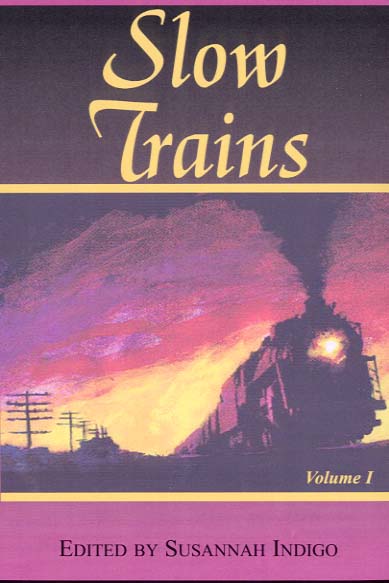 Slow Trains, Volume 1 in print
Slow Trains, Volume 1 in print
